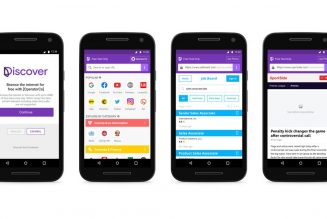
Amazon on Thursday announced Alexa for Residential, a new program designed to make it easier for landlords and property managers to add Alexa devices to rental units to create smart apartments (smarpartments? smartments?). The company is billing it as a service “that makes having an Alexa-enabled home accessible for anyone, regardless of whether they rent or own their home.”
Property managers can provide “custom voice experiences for their residents,” and no account or device setup is required. You don’t even need an Amazon account. But if you do have one, you can “easily link it to access the full range of Alexa features, including the ability to call friends and family” and link to your music playlists. “It will all just work,” the company says, listing off a slew of convenient-sounding features, like asking Alexa to remind you when it’s recycling day or play the news and weather. If you have your own Amazon account, you can link it to manage the device in the unit via your own Alexa app.
Amazon says property managers don’t have access to any tenant data, and voice recordings are automatically deleted daily. If a tenant links their own account, their preferred privacy settings will apply. They can unlink their accounts any time, and the in-unit devices can be reset along with any other smart devices in the apartment when the tenant moves out.
Okay, look: this is exciting “home of the future” stuff, and it sounds like it could make your life slightly easier. But has anyone ever watched any science fiction shows warning us about this sort of thing? The announcement says Alexa for Residential will allow property managers “to offer custom voice experiences that go beyond the walls of their apartments” and create custom Alexa skills for every unit in a building “allowing residents to manage rent, maintenance requests, amenity reservations, and more.”
Thinking back on all of the landlords I’ve had over the years, I’m not sure I would have wanted any of them to customize an experience that went “beyond the walls” of my apartment. It would be nice to be able to trust that all of these privacy issues (that the Alexa announcement kind of hand-waves at) would, in fact, work as described.
But Alexa’s track record on privacy is spotty at best: a Bloomberg investigation last year found that Amazon was employing people to listen to and transcribe voice recordings captured by Alexa-enabled devices. It was also revealed last year that Amazon didn’t always delete user data that Alexa gathers, even when users told it to. The company later added an “opt-out” on human reviews of Alexa’s voice recordings.
And smart apartments aren’t always accepted by tenants. A group of New York City apartment residents successfully sued their landlord to require physical keys in addition to a smart lock. The tenants’ group was concerned that the smart lock “could be used to “surveil, track, and intimidate tenants,” claiming the smart lock could track their comings and goings.
So it will be interesting to see if smart-partments become an upsell for landlords seeking to attract tech-savvy tenants. The first three companies to use Alexa for Residential service are IOTAS, Stratis IoT, and Sentient Property Services. The companies plan to bring the Alexa service to properties in Denver, Colorado, Florida, and Annapolis, Maryland, this fall, and Amazon is opening the program to more partners beginning today.










